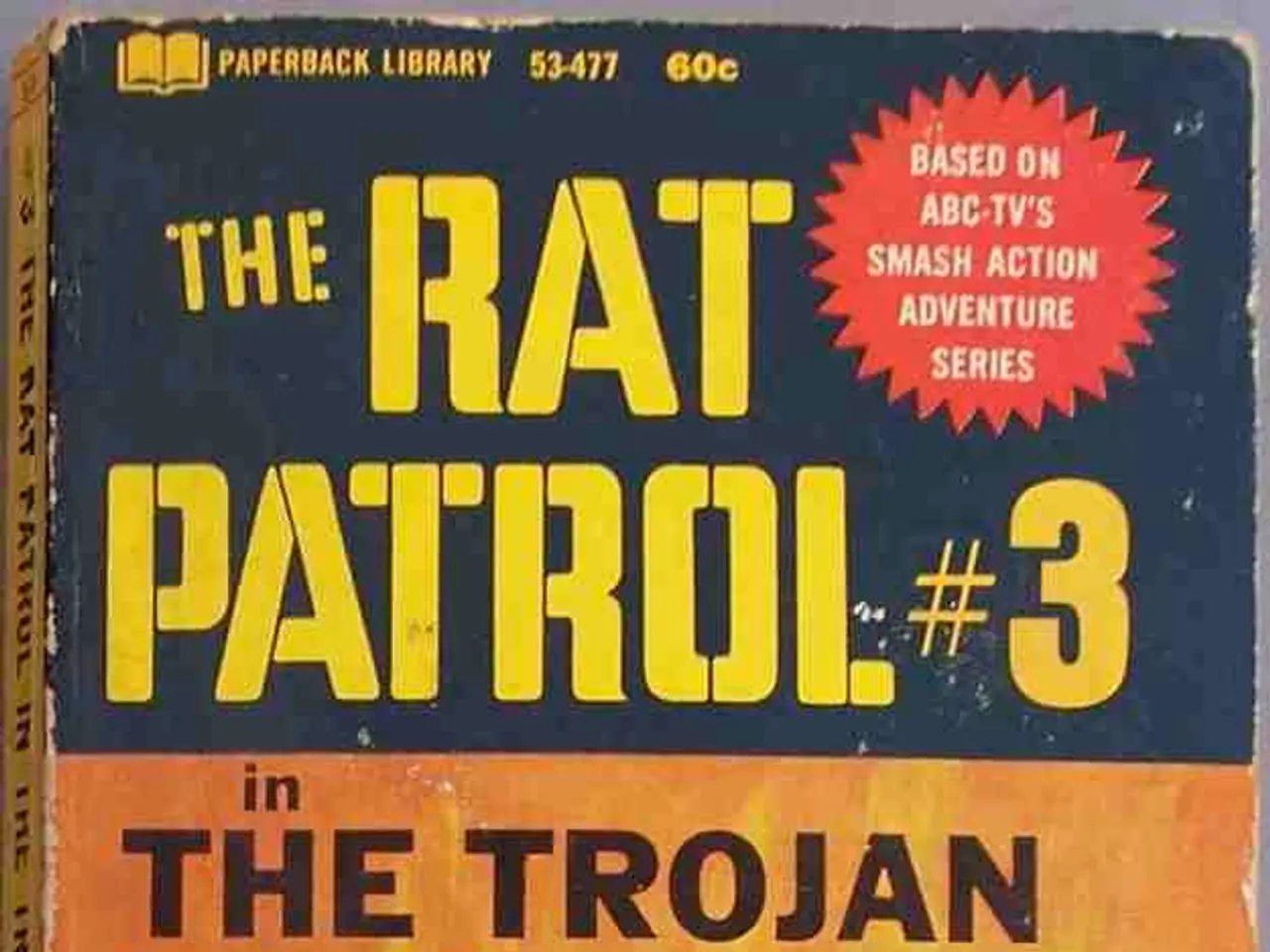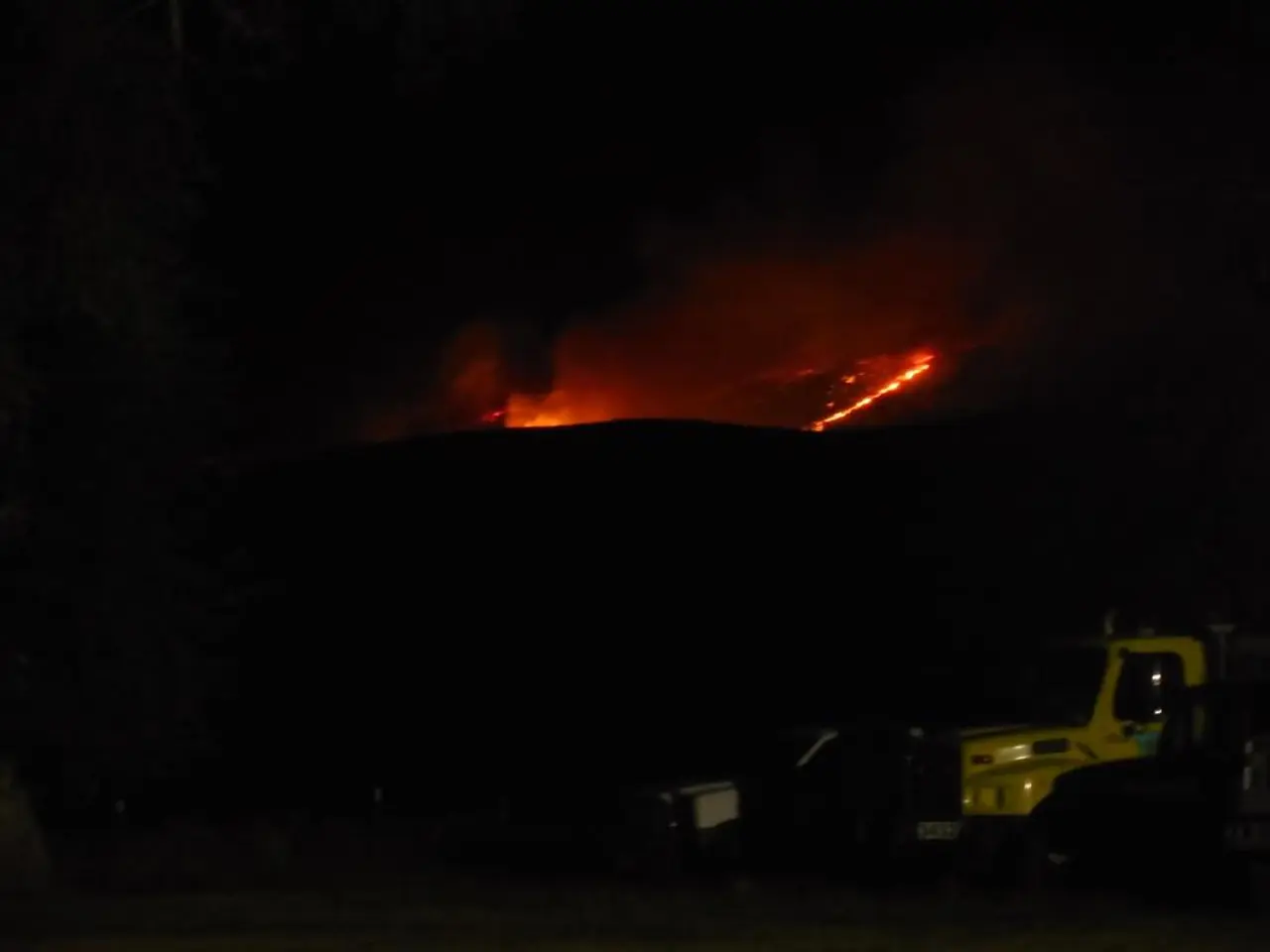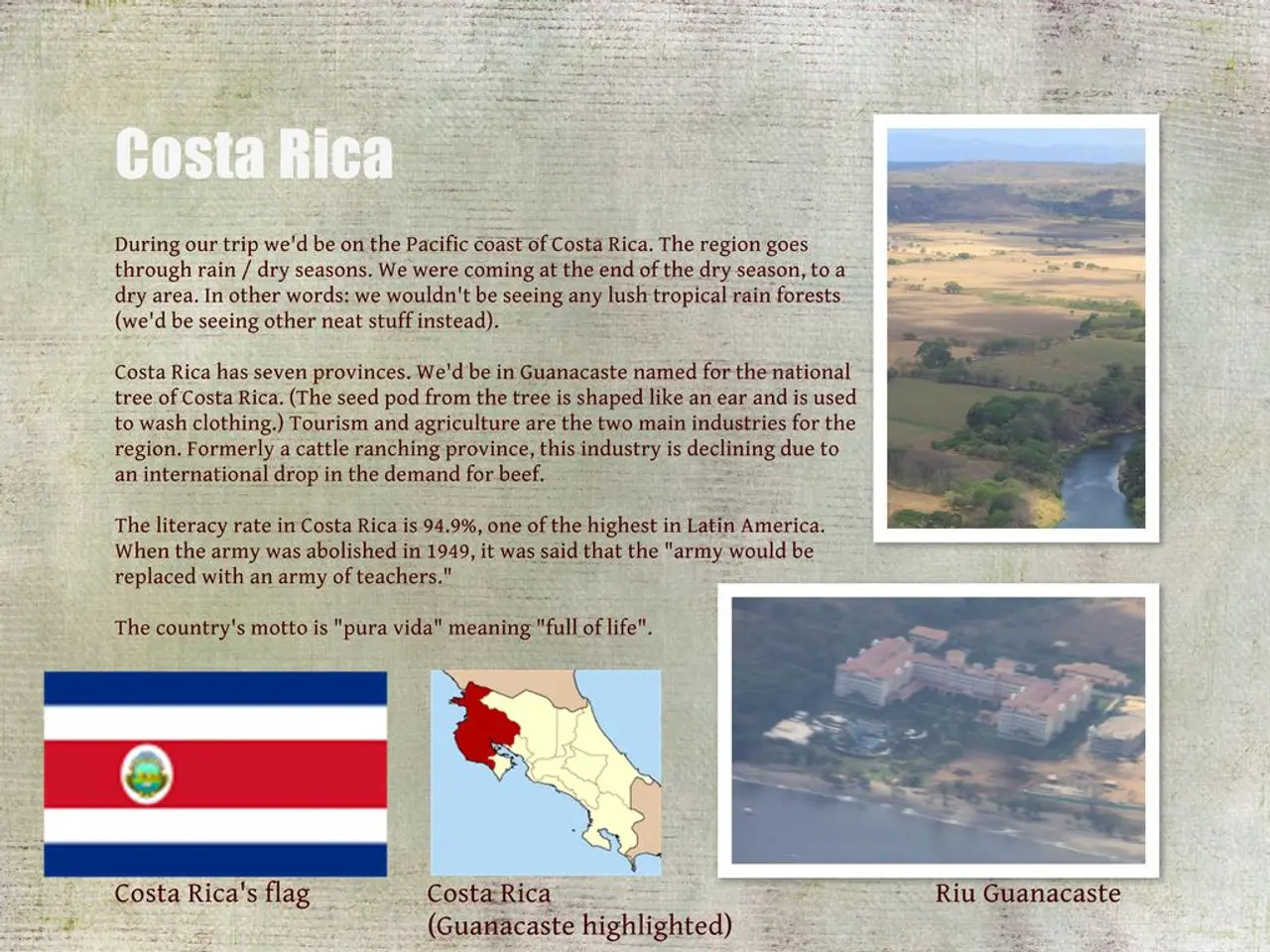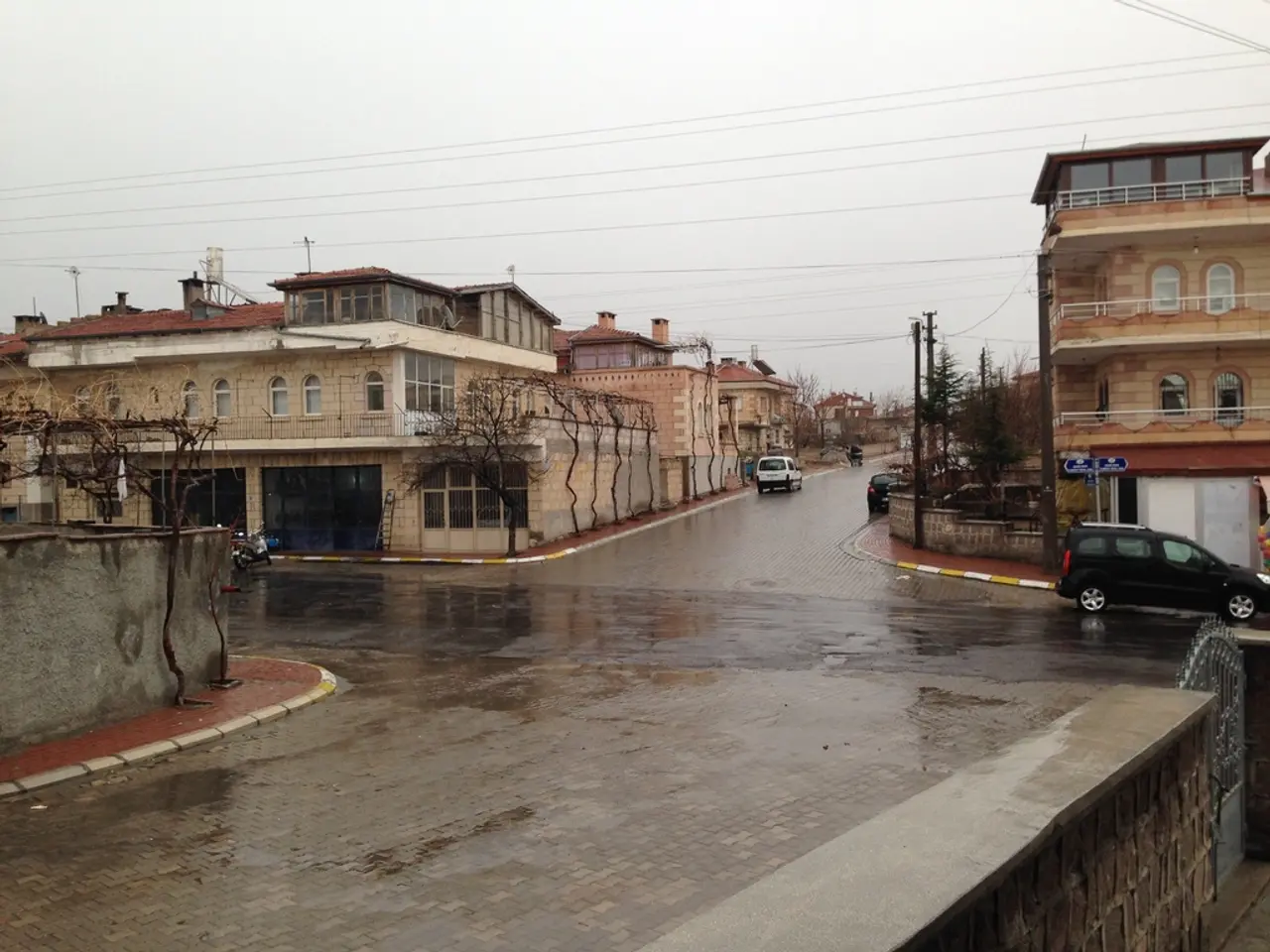Trump Announces Deployment of Nuclear Submarines, Sparks Controversy with Remarks from Russia's Former Leader - Controversial Statements by former Russian President: Trump Deploys Nuclear Submarines
In a move aimed at nuclear deterrence, President Trump has ordered two U.S. nuclear submarines to be repositioned to "appropriate regions" as a response to what he called "provocative" statements from Russia's ex-president, Dmitry Medvedev [1][3]. The exact locations of the submarine deployment have not been disclosed, but it is understood that they will be stationed in regions within missile range of key Russian targets, such as the North Atlantic, Arctic, or North Pacific [2].
The Ohio-class ballistic-missile submarines (SSBNs) are being sent to maintain a credible second-strike capability, ensuring that any adversary doubts they could eliminate all of the U.S.’s nuclear forces in a first strike, thereby discouraging nuclear conflict [2].
Medvedev, who is currently Deputy Chairman of Russia's Security Council, has criticised Trump's deadline-setting for Russia to cease hostilities in Ukraine, framing it as an ultimatum that risks escalating toward war, potentially involving the U.S. itself rather than Russia or Ukraine alone [1]. Russian President Vladimir Putin's specific public response to this submarine repositioning is not detailed in the sources, but Trump's frustration with Putin over the ongoing Ukraine conflict and Russia's recent drone attacks was noted [1].
Meanwhile, Putin announced the start of serial production of the nuclear-capable hypersonic missile "Oreschnik" [4]. Some EU countries, like Hungary, Austria, and Slovakia, also remain dependent on Russian gas, adding another layer of complexity to the geopolitical chessboard [5].
Trump stated that words often lead to unintended consequences and expressed hope that this situation will not escalate. He also spoke of tariffs of "around 100 percent" against countries that continue to import cheap oil and gas or weapons from Russia [6]. It is not specified whether the dispatched submarines are nuclear-powered or nuclear-armed [7].
In a separate development, Medvedev recently referenced the Soviet-era nuclear strategy of the "Dead Hand," which involves the automatic deployment of nuclear weapons if the Russian leadership is incapacitated by a nuclear strike [8]. This particular strategy affects countries like China, India, or Brazil, adding another dimension to the global nuclear arms race.
As the situation continues to evolve, both the U.S. and Russia will need to navigate this delicate balance between deterrence and escalation, with the potential for unintended consequences looming large.
References: [1] https://www.bbc.com/news/world-us-canada-54821785 [2] https://www.nytimes.com/2021/02/01/us/politics/trump-russia-ukraine-submarines.html [3] https://www.reuters.com/world/us/trump-orders-nuclear-submarines-repositioned-response-medvedev-2021-02-01/ [4] https://www.reuters.com/world/europe/putin-orders-start-serial-production-nuclear-capable-missile-oreschnik-2021-02-01/ [5] https://www.reuters.com/business/energy/russia-europe-gas-prices-2021-02-01/ [6] https://www.reuters.com/world/us/trump-threatens-sanctions-against-russia-ukraine-if-attacks-continue-2021-02-01/ [7] https://www.reuters.com/world/us/trump-orders-nuclear-submarines-repositioned-response-medvedev-2021-02-01/ [8] https://www.bbc.com/news/world-europe-55830020
- In response to Dmitry Medvedev's criticism of his deadline-setting on Ukraine and provocative statements from Russia, US President Donald Trump has ordered two nuclear submarines to be repositioned, potentially in regions such as the North Atlantic, Arctic, or North Pacific, to maintain a credible second-strike capability against Russia, and has warned of potential tariffs against countries importing Russian goods.
- Meanwhile, Russian President Vladimir Putin announced the start of serial production of the nuclear-capable hypersonic missile "Oreschnik," adding another dimension to the global nuclear arms race, as the situations in Ukraine and general news political conflicts persist, requiring careful maneuvering between deterrence and escalation by both the US and Russia.






